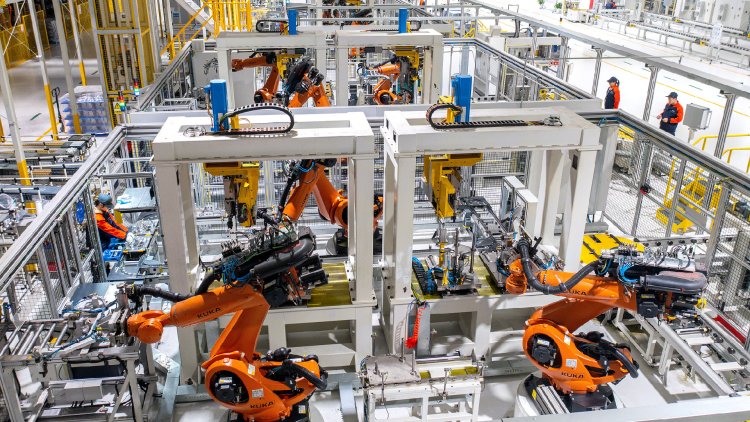8th Digital China Summit aims to propel data economy, highlight technological advancements
The 8th Digital China Summit is set to take place in Fuzhou, located in southeast China's Fujian Province, on April 29 and 30. The event will highlight the nation's accomplishments in digital transformation, reflecting the strong growth in the digital sector.

During a press conference at the State Council Information Office on Monday, Liu Liehong, head of the National Data Administration, stated that the summit seeks to tackle challenges in data utilization and achieve market-driven value creation.
Official data indicates that China's digital industry generated 35 trillion yuan in revenue in 2024, representing a year-on-year growth of 5.5 percent. Profits in the sector reached 2.7 trillion yuan, marking a 3.5 percent increase.
Liu also mentioned that the summit will unveil several policy documents, including reports on the development of digital China and a national survey of data resources, which will provide strategic direction for future digital initiatives.
Expecting over 300 professional organizations to participate, Guo Ningning, Party chief of Fuzhou, noted that companies will account for more than 75 percent of attendees, with private enterprises making up over 50 percent—both figures showing growth compared to previous summits.
The event will host more than 100 activities focused on aspects such as digital transformation, data element applications, technological advancements, and industrial cluster development.
A standout feature of this year’s summit will be the unprecedented showcase of cutting-edge technologies, with over 65 percent of the products making their debut. Guo highlighted that these include smart robots, advanced drones, brain-like computing, and large multi-modal language models.
Attendees will be immersed in digital experiences, featuring interactive humanoid robot greeters, performances by robot dogs, and digital cultural displays within Fuzhou's historic neighborhoods like Sanfangqixiang—translating to "three lanes and seven alleys"—where traditional culture coexists with modern technology.
The digital economy has emerged as a vital contributor to China’s economic growth, with core digital sectors accounting for approximately 10 percent of the gross domestic product in 2024. Additionally, China’s "lighthouse factories" constitute more than 40 percent of the global total.
These lighthouse factories are recognized by the World Economic Forum for their excellence in leading the Fourth Industrial Revolution.
Liu reaffirmed that the National Data Administration will maintain its focus on market-oriented reforms of data elements, guide pilot projects for digital development in key areas, and foster international collaboration to further enhance the advancement of the digital economy.
Debra A Smith for TROIB News
Discover more Science and Technology news updates in TROIB Sci-Tech












